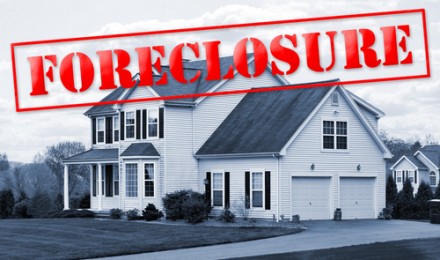When you are facing foreclosure, one of the first things you should do is to determine whether your state is a judicial foreclosure state or a non-judicial foreclosure state. This distinction will make a significant difference in how the foreclosure process works and in what to expect as the lender takes action against you.
Judicial Foreclosure States
Most states offer both judicial foreclosure and non-judicial foreclosure as an option, with a few limited exceptions. When a state does not offer both options, it usually allows for judicial foreclosures only while a few other states permit non-judicial foreclosures as their only option.
The states where judicial foreclosure is the only available choice for lenders include:
- Connecticut
- Delaware
- Florida
- Illinois
- Indiana
- Kansas
- Kentucky
- Louisiana
- Maine
- Maryland
- Massachusetts
- Nebraska
- New Jersey
- New Mexico
- New York
- North Dakota
- Ohio
- Pennsylvania
- South Carolina
- Tennessee
- Utah
- Vermont
The states where non-judicial foreclosure is the only available option for lenders include:
- Michigan
- New Hampshire
- Tennessee
- West Virginia
In all other states, lenders may use either judicial or non-judicial foreclosure, depending on your mortgage agreement.
The “Power of Sale” Clause and Non-Judicial Foreclosure
When a lender has a choice between a judicial foreclosure and a non-judicial foreclosure, that choice normally has to be made before a situation arises where a foreclosure is actually taking place. The choice is made when the mortgage is originated. The reason this is the case is that a non-judicial foreclosure is based on a clause in your mortgage document called a “power of sale” clause.
The power of sale clause gives the lender the right to foreclose based on non-payment, even without going to court to get an order of foreclosure from a judge.
Understanding the Difference Between Judicial and Non-Judicial Foreclosure
While both a judicial and non-judicial foreclosure result in the loss of the home, the process is different.
In a judicial foreclosure, you typically receive a notice of suit pending (les pendens) once you are in default on the mortgage. You’ll be given time to answer the complaint and raise defenses, and the lender will need to prove that you owe the mortgage and are in default. The foreclosure will not occur until a judge reviews the relevant information and enters a judgment against you.
In a non-judicial foreclosure, the court action is eliminated. Each state has specific notice requirements in place that must be met before a non-judicial foreclosure can occur. For instance, the lender may be required to notify you, post notices in the paper for six consecutive weeks before the property is auctioned off, post a notice on the property, and hold the auction on the courthouse steps on a specific day of the month.
Each of the states offering non-judicial foreclosure as an option to lenders have slightly different requirements. It is important both to read your mortgage documents and to learn your state laws in order to have a full understanding of how the foreclosure process will work.
When you are facing foreclosure, one of the first things you should do is to determine whether your state is a judicial foreclosure state or a non-judicial foreclosure state. This distinction will make a significant difference in how the foreclosure process works and in what to expect as the lender takes action against you.
Judicial Foreclosure States
Most states offer both judicial foreclosure and non-judicial foreclosure as an option, with a few limited exceptions. When a state does not offer both options, it usually allows for judicial foreclosures only while a few other states permit non-judicial foreclosures as their only option.
The states where judicial foreclosure is the only available choice for lenders include:
- Connecticut
- Delaware
- Florida
- Illinois
- Indiana
- Kansas
- Kentucky
- Louisiana
- Maine
- Maryland
- Massachusetts
- Nebraska
- New Jersey
- New Mexico
- New York
- North Dakota
- Ohio
- Pennsylvania
- South Carolina
- Tennessee
- Utah
- Vermont
The states where non-judicial foreclosure is the only available option for lenders include:
- Michigan
- New Hampshire
- Tennessee
- West Virginia
In all other states, lenders may use either judicial or non-judicial foreclosure, depending on your mortgage agreement.
The “Power of Sale” Clause and Non-Judicial Foreclosure
When a lender has a choice between a judicial foreclosure and a non-judicial foreclosure, that choice normally has to be made before a situation arises where a foreclosure is actually taking place. The choice is made when the mortgage is originated. The reason this is the case is that a non-judicial foreclosure is based on a clause in your mortgage document called a “power of sale” clause.
The power of sale clause gives the lender the right to foreclose based on non-payment, even without going to court to get an order of foreclosure from a judge.
Understanding the Difference Between Judicial and Non-Judicial Foreclosure
While both a judicial and non-judicial foreclosure result in the loss of the home, the process is different.
In a judicial foreclosure, you typically receive a notice of suit pending (les pendens) once you are in default on the mortgage. You’ll be given time to answer the complaint and raise defenses, and the lender will need to prove that you owe the mortgage and are in default. The foreclosure will not occur until a judge reviews the relevant information and enters a judgment against you.
In a non-judicial foreclosure, the court action is eliminated. Each state has specific notice requirements in place that must be met before a non-judicial foreclosure can occur. For instance, the lender may be required to notify you, post notices in the paper for six consecutive weeks before the property is auctioned off, post a notice on the property, and hold the auction on the courthouse steps on a specific day of the month.
Each of the states offering non-judicial foreclosure as an option to lenders have slightly different requirements. It is important both to read your mortgage documents and to learn your state laws in order to have a full understanding of how the foreclosure process will work.







